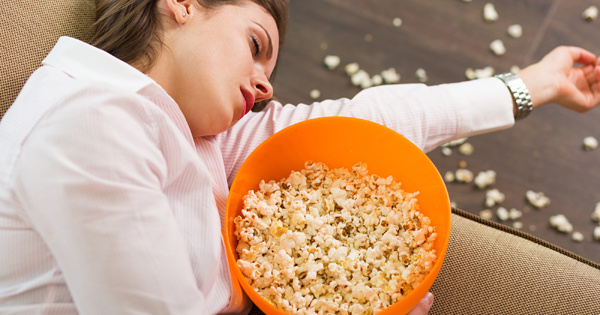Advertisement
A woman in the UK is taking her “food coma” to a whole new level after admitting that she has to take a nap after every meal.
Believe it or not, postprandial hypoglycaemia, or post-eating exhaustion, is a real ailment that can cripple a person’s life.
43-year-old Faye Perminsky can barely make it through the morning school run and dinner before she collapses in bed no later than 9 p.m.
For years, Faye had no idea what was wrong with her, but she knew that falling asleep at her desk after lunch wasn’t normal.
“Thankfully, on that occasion, everyone was still out at lunch and hadn't noticed,” Faye recalled, The Daily Mail reported. “I'd had a jacket potato, and soon afterwards felt my eyes start to become heavy and my lids start to close. My vision went blurry and all I wanted to do was sleep. The next thing I knew, I woke up with my head lying on a bunch of files and an hour had passed.”
It wasn’t until she finally learned that postprandial hypoglycaemia had been the culprit all along that Faye was able to figure out which foods she should be avoiding.
“Anything substantial makes me headachy and dizzy, and knocks me out as soon as I have eaten it,” she said. “Eggs on toast, a jacket potato, chicken curry and rice, even a sandwich. I eat it and within minutes, I'm desperate to get into bed. The only thing that doesn't make me so sleepy is salad, but it obviously doesn't fill me up for long.”
While Faye has done whatever she can to manage her condition, she admits that her intense food comas have put a damper on her marriage.
“If we go out to eat, we go early about 7pm then tend to be back home after an hour and a half because I can't stay awake in the restaurant,” Faye said, of her husband Richard. “Then I'll have to be tucked up in bed by 9pm at the latest.”
“Richard does get upset sometimes because it means we're not able to spend much time together in the evenings and it's a passion killer, but he's used to it now,” she added.
According to Dr. Abbi Lulsegged, consultant physician and endocrinologist at King's College, London, individuals suffering from postprandial hypoglycaemia can help reduce the symptoms of the serious condition by eating right.
Dr. Lulsegged advises avoiding white rice, white pasta, cakes, sweets, muffins, and liquid carbohydrates such as fizzy, sugary drinks, according to The Daily Mail.




